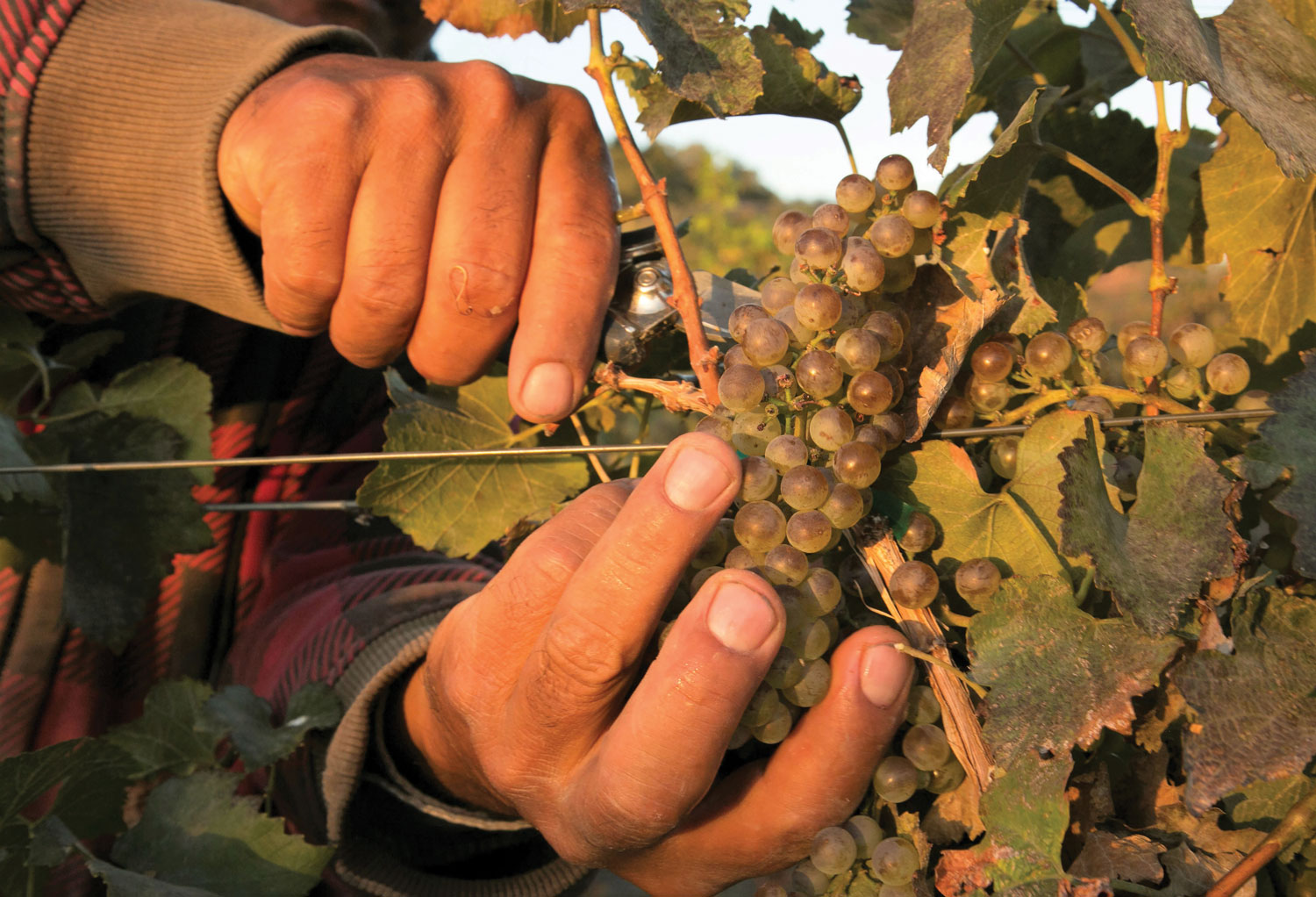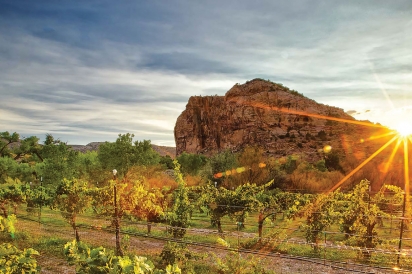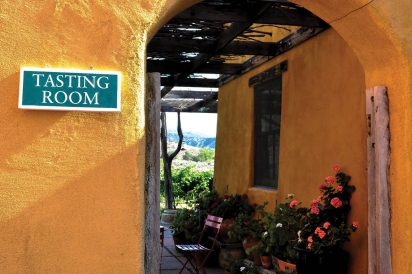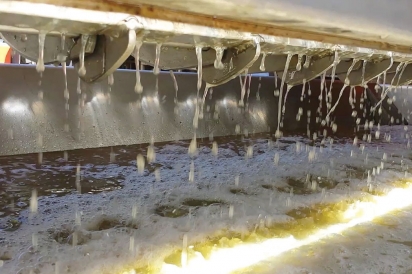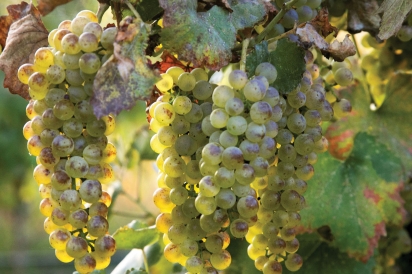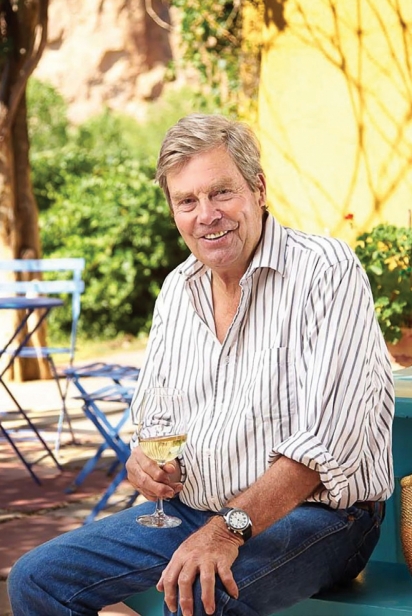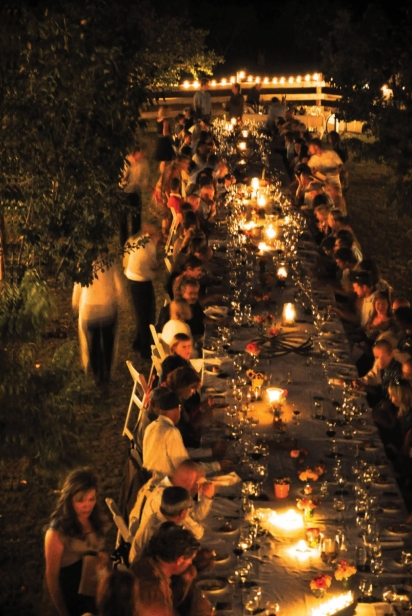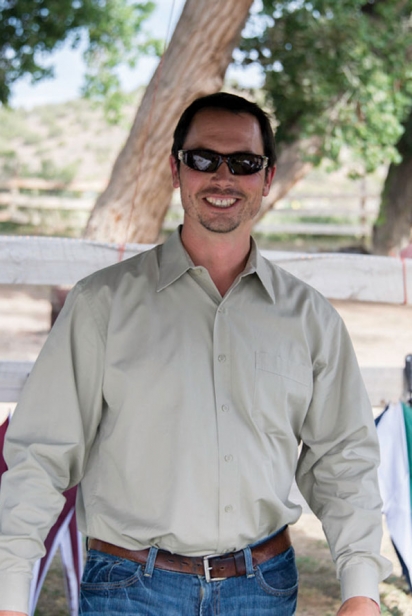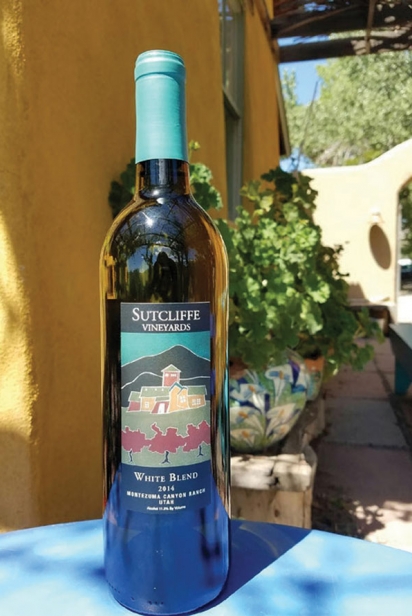Character Development
Colorado’s most lauded wines are a reflection of their charismatic founder.
“It’s so improbable, it almost sounds like the setup to a joke. “A Welshman moves to the deserts of the ancient Anasazi, plants French grape varietals on California and Washington rootstock and ends up producing Colorado’s most acclaimed wine.”
But this is no joke. John Sutcliffe of Sutcliffe Vineyards in Cortez has been producing wines in McElmo Canyon—a remote corner of Southwest Colorado—for nearly two decades.
In that time, Sutcliffe Vineyards was honored with Wine Enthusiast’s first 90-point ratings for Colorado wines and their bottles landed on distinguished wine lists throughout Colorado (including The Little Nell, the Telluride Ski and Golf Club properties) and beyond. The wines are both a tribute to and a manifestation of founder and owner John Sutcliffe and his singular vision.
Although he was raised in Wales, Sutcliffe’s early life included a commission from the Royal Military Academy Sandhurst, and he served in the British Army as an infantry officer. From there, on the advice of a mentor, he matriculated to the United States and the intellectually stimulating environment of Oregon’s left-leaning Reed College, from which he graduated in 1973. “I’m pretty sure I’m the only living Sandhurst/ Reed man,” he says with a laugh about the duality of his early education.
Having developed a burgeoning passion for food and wine, Sutcliffe headed to New York City to learn the restaurant trade. “I was fortunate to work for a guy named Warner LeRoy,” he says, naming the larger-than-life restaurant impresario of the time. “I managed Maxwell’s Plum on First Avenue, which was the hottest place in the city. When Warner bought Tavern on the Green, I went there to open it.” The stint led to a career as an owner and investor in restaurants and hospitality that endures to this day.
A life amongst the vines
The wine world is filled with characters. Some charm with their appreciation of good living, others are intriguing because of their knowledge of and passion for the land, and some beguile because of their unflagging enthusiasm: Sutcliffe manages to possess all of these qualities.
“The food and wine industries are based on trailblazers who know how to enjoy life,” says Bobby Stuckey, Master Sommelier and co-founder of Boulder’s Frasca Food & Wine (with Lachlan Mackinnon-Patterson). “John embodies this more than anyone. Full of vivacity and always ready for the adventure.”
Educated and erudite with a face that reflects a lifetime of optimism, it’s Sutcliffe’s way with words, delivered in a melodic accent (think Anthony Hopkins), that sets him apart from other winemakers (that, and the place where he’s chosen to establish his business).
To see Sutcliffe working and living amongst his vines is to see a man in full—someone who found a way to transfer a life of urban sensibilities and comfort to a high desert outpost and not only survive, but thrive. “I’ve been here for 30 years, but I don’t claim to understand the people or this place yet,” he says.
McElmo Canyon is located at 5,340 feet, just a few miles northeast of the Four Corners, where Colorado, Utah, Arizona and New Mexico converge. The temperature ranges from 100 degrees in summer to winter deep freezes. The land, though visually stunning, seems foreboding and, frankly, a touch cursed. The nearest designated wine appellation, the West Elks, is over 200 miles away.
The canyon was a home to the Anasazi, the ancient Native Americans who settled in the region thousands of years ago. They built pueblos in the surrounding cliffs and hillsides, some of which remain intact. Sometime around the 1300s, they simply disappeared. Theories abound as to why, but some believe climate change (a severe drought seized the region at the end of the 1200s, with virtually no rain for a quarter-century) was a catalyst for the Anasazi’s departure: not a good omen for a future winemaker.
The region’s climatic history didn’t deter Sutcliffe, who serendipitously stumbled upon success, although his intense determination played a critical role. “When I bought the property in 1992, I was going to raise some cattle and grow hay,” he says. “But a few years later, my architect, Reggie Gibson, visited and said I must plant some vines. I loved wine, so I thought, ‘Well, let’s try that.’”
Sutcliffe was undeterred by—and philosophical about—the extreme environment for his intended vineyard. “I come from a farming family, so I know what people mean when they talk about terroir,” he says. “The vine will grow anywhere, so let the wine be what it is.”
In 1995, he planted two acres of Merlot and Cabernet Franc near his home, using rootstock he acquired in California. “I had bought wines for restaurants for years and had relationships with Napa Valley’s Shafer Vineyards, Caymus Vineyards and Stags’ Leap, so I called them and asked for suggestions,” he says. His first vintage was from the 1999 harvest and was released to market in 2001.
Since then, Sutcliffe Vineyards has grown in both size and prestige, releasing, depending upon the vintage, 3,000 to 4,500 cases annually. “We work closely with our clients, often producing a wine in consultation with what their guests have expressed interest in,” he says.
There are three vineyards that Sutcliffe sources from in McElmo Canyon, all of which are farmed organically. The original two-acre planting is now Castillo Vineyard, owned and operated by Jesus Castillo, Sutcliffe’s original ranch and vineyard manager. Eleven acres of vines share the valley floor with Sutcliffe’s home and there are 40 additional acres tended by grower Bob Schuster in the western part of the canyon.
Quick to give credit to where it’s due, Sutcliffe extolls Castillo’s skills, along with those of his winemaker, Joe Buckel, who previously worked for Flowers Vineyards & Winery in coastal Sonoma County. “Joe is all about letting the earth speak,” says Sutcliffe. “He allows the wine to make itself and is fierce about not releasing them before they’re ready. That’s something I absolutely concur with.”
Today, the vineyard also grows Cabernet Sauvignon, Cabernet Franc, Merlot, Petite Verdot, as well as Syrah, Grenache, Chardonnay and Pinot Noir. Says Sutcliffe, “We get some very sophisticated guests … it was gratifying to recently hear from a French group that our Pinot was some of the most distinctive they’ve ever had—they described it as bright and earthy, with a barnyard quality.”
“You know,” he continues, “the French understand the difference between sentimentality and romance, yet they feel compelled to inject the latter into my story here, painting a picture of courage and stubbornness.” He pauses. “I’m 75 years old and the fact that someone would find that narrative in my wines is rather seductive.”
Go Find It!
Sutcliffe Vineyards
12174 County Road G, Cortez
970.565.0825
Tasting room appointments recommended
SutcliffeWines.com


